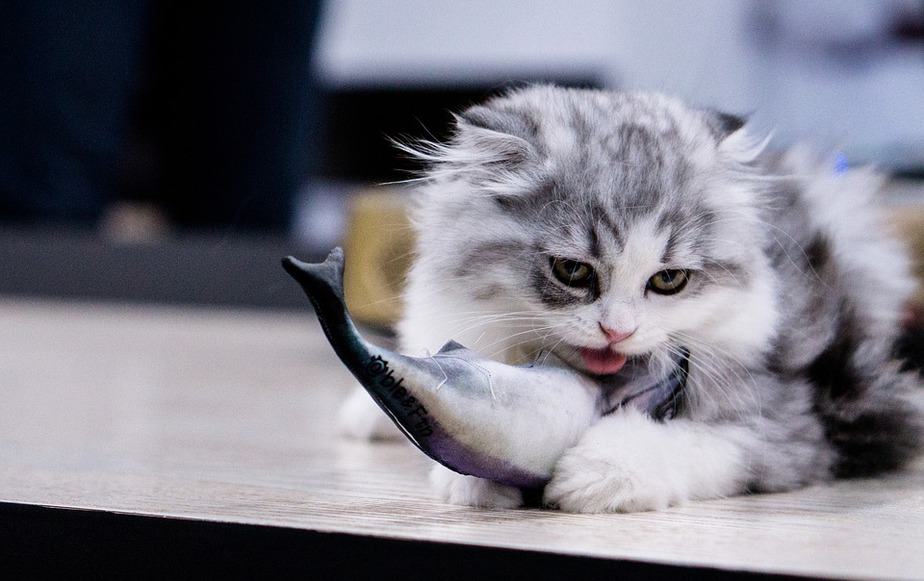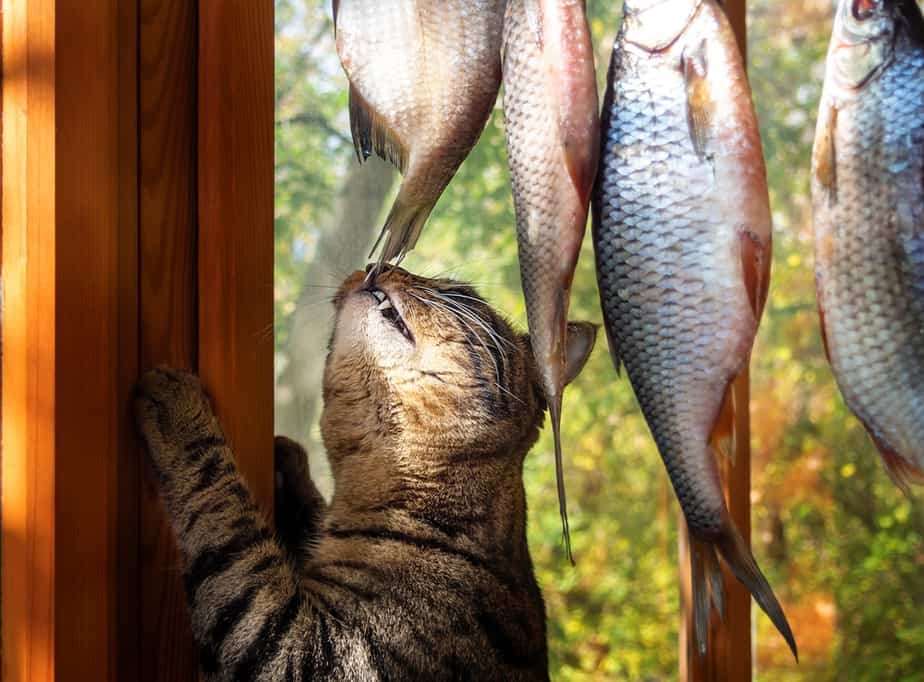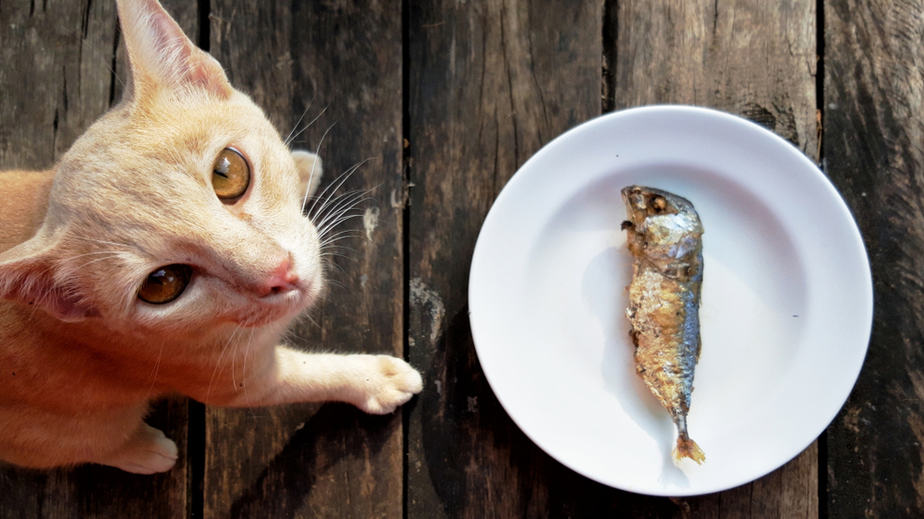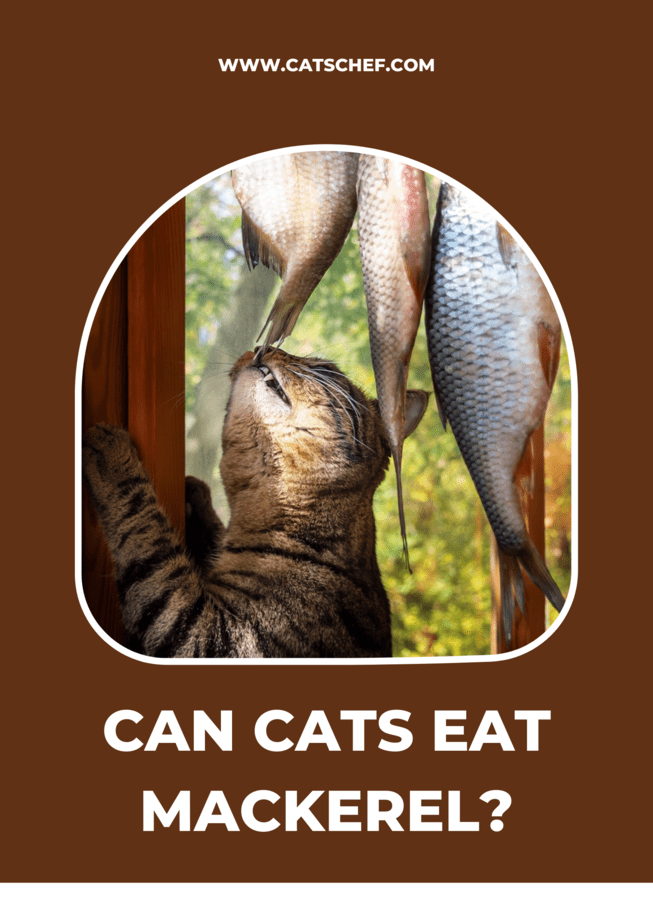📖 Table of Content:
Cats adore fish, just as we do. But can cats eat mackerel the same as we can?
You know your furry monster will come running when you put one in the oven or on the grill. Licking her whickers appears to be the first sign that she’s excited about the food that will be served!
She’s right there, eyeballing your every move. It’s not uncommon for cats to enjoy fish (and fishing!)
The good news is that cats can eat mackerel. These small, slender fish are completely safe for your pets. They’re not only safe, but they also add a variety of benefits to your cat’s diet.
It’s wonderful that your cat’s in the green zone with mackerel. In this article, we’ll go over the advantages and disadvantages of feeding this specific type of food to your cat.
Can cats eat mackerel safely?
In short, cats can eat mackerel, depending on how it’s prepared. Mackerel is a high-quality source of nutrients for your pet. Just like many other fish, they contain omega-3 fatty acids, which help your cat’s immune system and heart.
As a result, it’s reasonable to expect your cat to devour these delectable morsels. However, you’re probably familiar with the concept of “too good to be true.” So let’s see if there’s anything strange or dangerous about cats eating mackerel.
Fish can be a very beneficial addition to your cat’s diet. Popular fish include anchovies, sardines, salmon, and others. However, fish isn’t the primary source of nutrients for these carnivores, and it should never be the main course.
How can mackerel be good for cats?
When combined with other feline-appropriate foods, it’s a near-ideal treat for your furkid. If we’re discussing whether cats can eat mackerel, we should also consider the nutritional advantages.
Mackerel is a great source of nutrients for your cat. They contain an abundance of minerals and vitamins to meet a wide range of dietary needs. It’s high in protein, lipids, vitamin B12, selenium, magnesium, niacin, phosphorus, and potassium.
Cats need protein!
Cats don’t like fish, they utterly enjoy it! There are a few exceptions, but for the most part, they see fish as a wonderful delicacy. The smell of fresh mackerel may deter you from eating it, but it will undoubtedly make your cat drool.
Cats are drawn to fish because of their high protein content. They are obligate carnivores, which means they must consume meat on a regular basis in order to satisfy their protein needs. As a result, not only can cats eat mackerel, they will beg for it!
Carnivores benefit from protein in a variety of ways, including increased immunity and a healthier nervous system. Protein is the most important component in your cat’s general health and well-being.
Your cat will lose weight, muscular mass, and become fragile if she does not eat enough protein. She is built to digest animal-derived proteins better than plant-derived proteins.
But there are fats!
Yes, and good ones! Mackerel is high in omega-3 fatty acids which can be a game-changer for your furball! Omega-3 supports her immune system and heart, and is a good source of energy.
The three major omega-3 fatty acids are alpha-linolenic acid (ALA), eicosapentaenoic acid (EPA), and docosahexaenoic acid (DHA). These guarantee your cat is in excellent condition by keeping her heart, lungs, and immune system healthy.
Omega-3 also has anti-inflammatory properties and aid in keeping your cat’s skin hydrated. If you’re sick of grooming your cat every day, feed her some fish like mackerel or tilapia.
This won’t stop your fluffball from shedding altogether, but it will help! It will control her shedding and add shine to her coat.
So if you’re wondering whether cats can eat mackerel because of fats, the answer is yes! Omega-3 fatty acids are super beneficial to felines.
Can cats eat cooked mackerel?
It’s arguably the best way to feed mackerel to your kitty! Cooking plain fish may not stimulate your nostrils, but it will make your cat’s whiskers dance. What we are willing to go through for our furkids!
Remember to leave out the conventional “human” components when cooking these snacks for your cat. There’s no need for butter, oil, salt, or any other ingredient.
A modest amount of oil is okay, but no more. If you must use oil, extra virgin olive oil is best.
ALWAYS cook it thoroughly. It doesn’t matter if you cook it in a pan, grill it, or boil it. Mackerel will be much safer for your cat in cooked form.
What’s the catch with raw fish?
Even with all of the health benefits, there are a few downsides to feeding mackerel to your cat. Although these little fish are more useful than hazardous to your cat, keep the following in mind.
Anisakis parasites are occasionally found in mackerel. These parasites can be killed by cooking or freezing. So, as long as you don’t feed your cat raw fish, you should be fine.
In addition to parasites, we can’t forget about the other risk associated with fish and shellfish: mercury poisoning. Nearly all seafood, even squid, contain traces of mercury. This is a dangerous heavy metal buildup that happens naturally. Your cat may get wobbly and dizzy as a result of them.
Larger fish generally contain higher levels of mercury. Fortunately for your floof, mackerel is a smaller fish, so it’s considered a low-mercury fish (with the exception of king and Spanish mackerels, which are high-mercury fish and should be avoided).
Are cats allowed canned fish?
Canned fish is a convenient option for many people. It’s already been cooked, seasoned, and ready to eat. It’s this processing that unfortunately makes it less than ideal for your kitto. The quantity of salt and other flavors in canned mackerel is shocking.
Although salt is necessary for your cat, it can easily become harmful to them. One teaspoon of salt is sufficient to cause sodium poisoning. Because canned fish contain a lot of salt, you should keep it out of your cat’s reach.
While a single lick is usually not a cause for concern, continual consumption will have detrimental implications. While cats can safely eat plainly cooked mackerel, it’s best to avoid canned versions.
Can cats eat mackerel in tomato sauce?
Although it’s not recommended, little amounts of fish in tomato sauce are unlikely to harm your cat. A tiny bite of mackerel in tomato sauce will not harm your cat. Keep in mind, however, that this variety of mackerel includes a lot of salt.
Despite the fact that, unlike ketchup, tomato sauce is often made without as many spices, it still contains tomatoes, which are not good for felines.
Tomato sauce contains both meat and vegetable broth, which your pet may like. But tomato sauce, like tomato soup, may be difficult for your pet to digest. And if it contains onion, garlic, spice, or herbs, it might be extremely harmful to your cat.
If she likes fish in tomato sauce, be sure to not overfeed!
Related post: Can Cats Eat Sardines? Is This Fish An Appropriate Cat Dish?
In summary
Cats may be picky eaters, which can be aggravating at times. You frequently want to offer your kitten a treat, but you can’t because she scrunches her nose at it.
These demanding creatures will force us to do whatever it takes to satisfy them. Mackerel may be one food that does the trick. It tickles their fancy in terms of smell and taste!
The good news is that mackerel is healthy and safe. They are a great source of important nutrients, such as protein and healthy fats.
Different brands offer different versions of mackerel treats, but if you want something 100% natural and without added spices, Applaws sells a whole mackerel loin your kitty will enjoy.
If you choose to prepare a mackerel treat on your own, just remember to always cook it because raw foods can pose a threat to your cat’s health. Also, make sure to avoid flavorings and seasonings. Canned fish can be dangerous because of the amount of salt and other spices.
And finally, stay away from fish bones!




